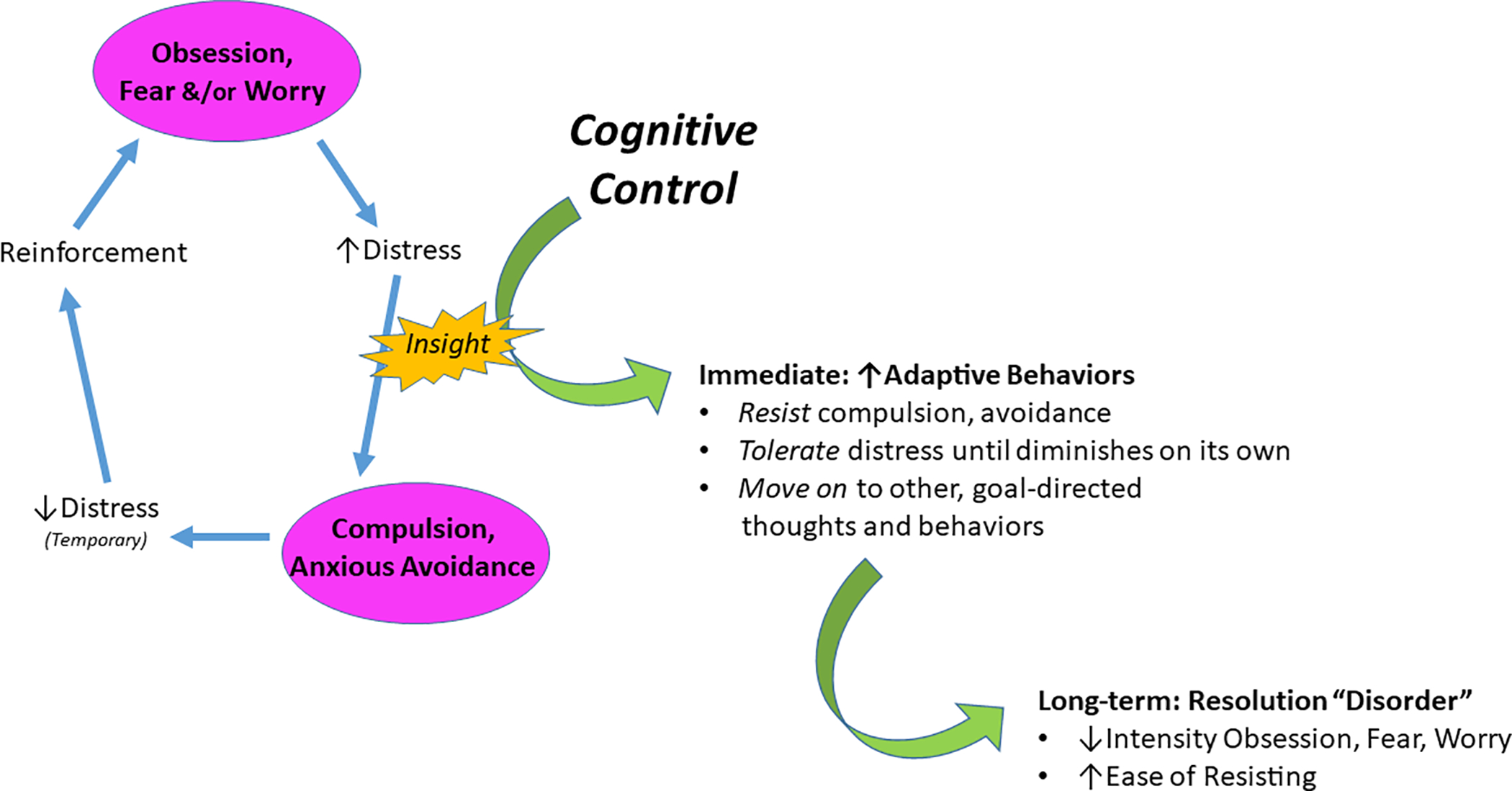Figure 1.

We posit that cognitive control is a key mechanism by which patients with obsessive-compulsive (OCD) and non-OCD anxiety disorders resist the urge to act on fear that they recognize as excessive and unreasonable. By effectively recruiting cognitive control, patients are able to resist the avoidance behaviors (e.g., compulsions in OCD; escape or over-preparation in phobias or generalized anxiety) that reinforce obsessions, worry and fear. Thus, cognitive control is the core process that enables patients to build from insight that obsessions, fears and worries “do not make sense” to resist the pathological urge to avoid, and thereby break the vicious cycle of illness.
